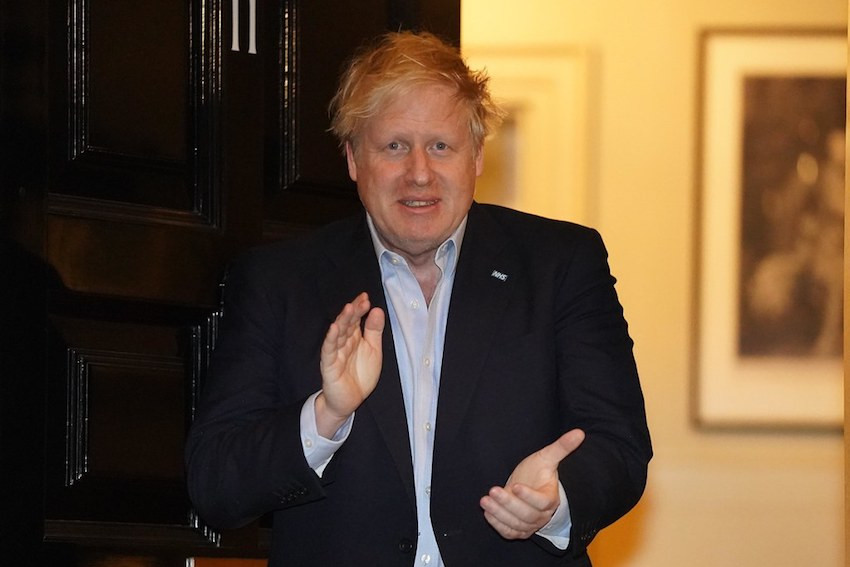Johnson’s condition “worsened”
The British prime minister, Boris Johnson, was moved on Monday evening to an intensive care unit after he had difficulty breathing. He was admitted to a London hospital on Sunday evening and given oxygen on Monday afternoon. The move to intensive care was made as a precaution, in case he needed a ventilator, press were told. Johnson tested positive for covid-19 on 27 March and had been self-isolating until his symptoms became more acute. Dominic Raab, the foreign minister, has been deputised to act for the PM. Sources: BBC, CNBC, Financial Times, The Guardian, Independent and Sky News.
Austria to start exiting covid-19 restrictions
The Austrian government outlined plans to ease its coronavirus lockdown. Small shops will be allowed to reopen on 14 April, larger stores and hairdressers can reopen on 1 May, and restaurants and cafés could reopen in mid-May. Wearing face masks will continue to be mandatory, schools remain closed for now and public events are banned until at least June. Sources: Euractiv, Financial Times, Politico and the Telegraph.
Denmark to start lifting covid-19 measures
The Danish PM said kindergartens and some primary schools would restart on 15 April and older children could return in mid-May, if the country’s trajectory holds. Public events will be banned through August. The Danish government will speak with businesses about employees returning to the office. Sources: Bloomberg, Financial Times, The Local Denmark and Reuters.
Pell wins appeal
George Pell, the ex-Vatican treasurer, was released from prison after Australia’s High Court quashed his child sex abuse conviction. Cardinal Pell was sentenced to six years in 2018 for sexually assaulting two choirboys in Melbourne in the 1990s. He had always maintained his innocence. Pell cannot be retried. Sources: ABC News, BBC, The Guardian, NPR and Reuters.
JPMorgan boss pandemic warning
Jamie Dimon, CEO of JPMorgan, America’s largest bank, predicted the covid-19 outbreak would cause “a bad recession” and said the bank could consider suspending its dividend. Sources: CNBC, CNN, Financial Times and The Guardian.
Investors take travel stakes
Some companies in the hard-hit travel sector have been able to raise cash. The Public Investment Fund of Saudi Arabia invested $420m for an 8.2% in the cruise ship operator Carnival, per the Financial Times, Marketwatch and Seeking Alpha. Airbnb raised $1bn from private equity investors, per CNBC, Financial Times and Reuters.
Global nurse shortfall
The World Health Organization said there was a global shortage of 5.9m nurses, per AFP, CNBC and the Nursing Times.
Elections to proceed in Wisconsin despite covid-19 after court ruling
Wisconsin’s supreme court overturned a decision by the state’s governor to delay, due to the coronavirus outbreak, this week’s primary elections and the US Supreme Court said he could not extend the postal voting deadline. Sources: Associated Press, CNBC, CNN and Reuters.
Agenda
Tuesday 7 April, 8:05pm: Ara City Radio hosts a “Big fat Lux pub quiz” via Facebook. Wednesday 8 April, 10am-11am: ABBL and Allen & Overy have a “Covid-19 outbreak and its impact on the banking sector” webex conference. Wednesday 8 April, 11am-12:30pm: The House of Entrepreneurship holds a “How to set up my company in Luxembourg?” online workshop. Wednesday 8 April, 5pm-6pm: Workshop4me hosts an “Unravel the marvels of computing, animated coding and fascinating machines” webinar for children and their families. Thursday 9 April, 1:30pm-2:30pm: Jackye Elombo of Legalis will discuss the short-time working scheme, emergency family leave and legal issues for cross-border workers during this Paperjam Club webinar.
Some other coronavirus-related stories
Upside: Business is booming at drive-in movie theatres in Germany, South Korea and the US, per The Atlantic. Telecommuting: Bored Panda has a collection of (alleged) videoconference fails. Wedding plans: A couple in the US state of Michigan made cardboard cutouts of their wedding guests, since none of them could attend the church ceremony, per UPI. Supply chains: Toilet paper shortages aren’t caused by hoarding, but because, per Marker, people are using 40% more rolls at home. Logistics: Toilet paper supplies weren’t helped by a truck filled with the precious cargo crashing and burning in Texas last week, per the Associated Press.
Today’s breakfast briefing was written by Aaron Grunwald
